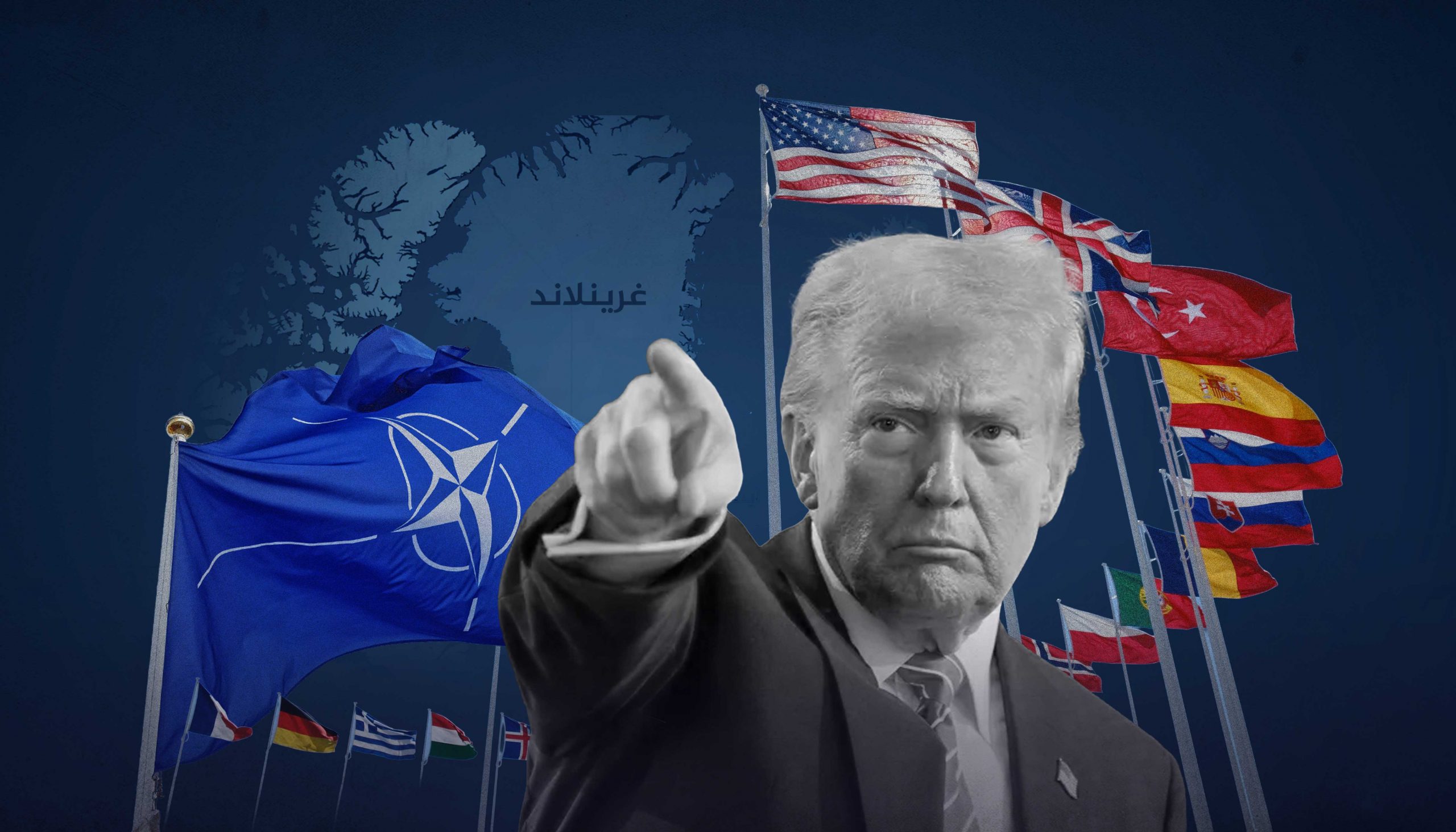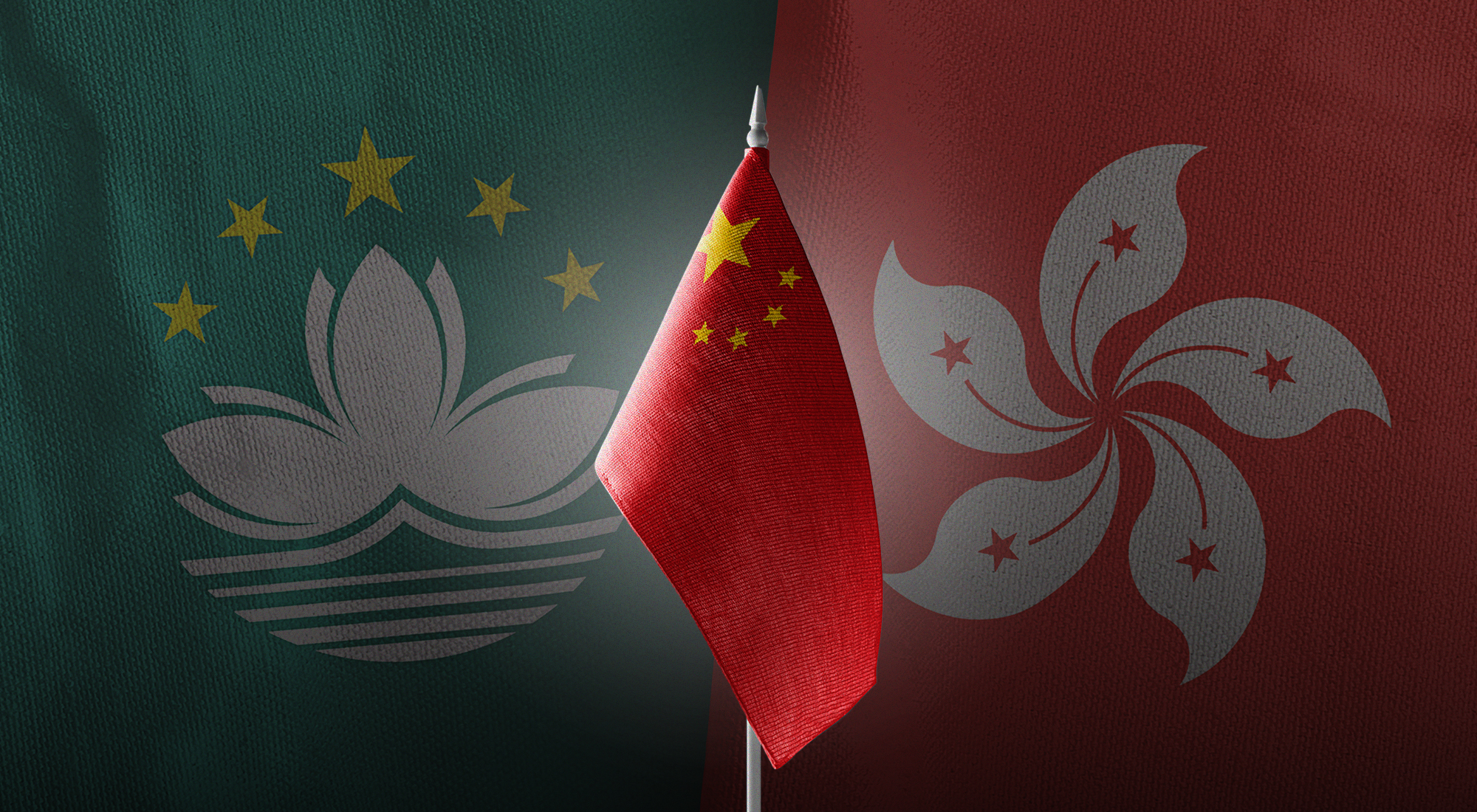Turkey’s political culture has historically relied on an acute sense of militarism since the inception of the Republic. The intricacies of civil-military relations in Turkey have played out in the country’s many military interventions, where the Turkish Armed Forces either directly or indirectly intervened in political life. With Erdoğan’s ascent to power in 2001, Turkey experienced an unprecedented period of strong civilian rule, which in turn saw the military’s influence over politics wane as a conscious policy of the government. While the direct autonomy of the Turkish army has faded, a new power center in the Turkish polity has formed: The Military-Industrial Complex (MIC).
Turkey’s foreign and security policies increasingly rely on the country’s homegrown defense industry. Initially, Turkish defense firms were largely owned and operated by endowments established by the Turkish Armed Forces, such as HAVELSAN[1] and ASELSAN.[2] In the last decade, the breadth of companies operating in the sector has expanded exponentially.[3] The most notable of these is the famed UAV manufacturer Baykar Technologies, headed by Erdoğan’s son-in-law, chief technology officer Selçuk Bayraktar. Baykar’s signature product, the TB2 unmanned aerial vehicle (UAV), has become synonymous with Ankara’s expanding security footprint and has evolved into a major export tool, with a wide array of government clients.
The MIC’s significance, however, transcends the realm of foreign policy and is telling of a paradigmatic shift in Turkey’s politics. While Erdoğan’s policies dismantled the autonomy of the army, firmly establishing civilian control, persistent investment in the defense industry has created a new set of political elites that derive their influence from the novel setting of civil-military relations.
In essence, Erdoğan’s initial policies of reigning in the military gave way to a remodeled partnership between politicians, the security bureaucracy, and the armed forces. Erdoğan’s political campaigns rely heavily on the success of the defense industry and play a large part in the governing coalition’s national discourse. The overarching political culture of Turkey exudes a sense of pride in the country’s MIC, an image that is persistently regenerated and disseminated across public platforms. Both popular and public culture feed on this discourse, and the prowess of the defense industry is often not challenged by the opposition to Erdoğan, placing the MIC in an almost sacrosanct position.
The pacification of the military under Erdoğan successfully stripped the army of its autonomy to intervene in politics. Now, Erdoğan oversees a system that meshes the public, military, and political domains, ultimately revising the nature of civil-military relations in Turkey. A refreshed militarism reigns supreme — one that has evolved alongside the country’s ambitious foreign policy.
Activist Foreign Policy
Turkish UAVs made their international debut in Libya. This was coupled with ongoing military operations in Syria, where Baykar’s UAVs again proved successful in Turkey’s campaign against the YPG-SDF.[4] As a matter of routine, Baykar UAVs are also employed in the ongoing military campaign in Iraq, where Turkish UAVs conduct both intelligence gathering and targeted strikes against the PKK.
Beyond the Middle East, Turkish UAVs have appeared in the conflict in Nagorno-Karabakh, where Azerbaijan’s rapid military success was attributed to the effectiveness of Baykar products.[5] Turkish UAVs have made it as far into the globe as East Africa, with the Ethiopian government recently utilizing a select number of TB2 units in the country’s ongoing civil conflict.[6]
There is an undeniable correlation between Turkey’s growing military activism and the expansion of the MIC. The Turkish MIC is not only a vector for Turkey’s overseas military deployment but also a strong motivator of that very policy. Turkish defense products portray increasing geopolitical significance, transcending national and regional boundaries, and providing access to areas where Turkey has traditionally not ventured into. The diversification of Turkish foreign policy and the growth of the defense industry have occurred simultaneously.
Turkey’s activist foreign policy has found grounding in the rise of the defense industry and has established Ankara as a desirable actor to pursue relations with. Previously, Turkey had relied on discursive devices to advance its controversial yet ambitious foreign policy agenda. That policy saw Erdoğan extend support to popular movements in the Middle East, particularly in the wake of the political uprisings after 2011. With the regional tumult giving way to conflict and the resurgence of traditional authority, Ankara’s focus shifted towards militarizing foreign policy, with the defense sector at the heart of this struggle.
Perhaps the most glaring of these transnational ventures is Baykar’s ties with the Ukrainian government. While Turkey persists with a policy of equidistance in the war between Ukraine and Russia, Baykar’s commitment to the Ukrainian campaign remains steadfast. Building on the early success of TB2 units against Russian targets at the beginning of the war, Baykar is now constructing a production facility on the outskirts of Kyiv to continue supplying Ukraine with the same units.[7] Baykar officials and President Volodymyr Zelensky meet routinely, with Turkish UAVs constantly glorified by Ukrainians.
Baykar’s position is the first time in Turkey’s modern history that a private company wields such influence in policymaking and functions in part as an autonomous non-state actor. Baykar’s status is concurrent with the rising prominence of other defense and security-related corporations that function in pseudo-governmental capacities, such as Russia’s Wagner Group and the U.S.-based Blackwater.
In the centralized power structure of Turkey, the presence of non-political power centers is an asset for the government. For instance, Baykar’s relationship with Ukraine has ensured Ankara remains tethered to the West’s collective effort to support the Kyiv government. On the other hand, Erdoğan continues to develop strategically motivated relations with Russia, striking a balance that otherwise would have been difficult to manage.
Turkey’s Drive for Regional Normalization
The defense industry has been key in Turkey’s ongoing policy of revising relations with regional countries, adding yet another layer of significance to the MIC’s input into policymaking. As part of this process, Turkey has pursued a series of successful bilateral resets with the United Arab Emirates (UAE), Saudi Arabia, and Egypt. In each instance, the significance of the MIC, and particularly that of Baykar Industries, is glaringly apparent.
The UAE and Baykar reportedly inked a US$2 billion agreement to supply the former with 120 units of the TB2.[8] As of 2024, 20 of these units had been delivered.[9] Additionally, Baykar and the UAE’s EDGE group are cooperating on equipping Emirati manufactured precision-guided munitions onto the TB2 unit.[10] As the sale of TB2 units exemplifies, Baykar’s products have not only evolved into strategically significant export products but are also promoting transnational technology cooperation. Given that Baykar operates as a private company with significant ties to the state and Erdoğan personally, it has showcased a great deal of flexibility in maintaining its own institutional character.
Again, Baykar sits at the nexus of proliferating ties between Ankara and Riyadh. Erdoğan’s last visit to Saudi Arabia culminated with news of Baykar’s greatest export agreement to date, with the Kingdom agreeing to purchase over US$3 billion worth of Baykar’s next-generation UAV Akinci.[11] This has been hailed as Turkey’s “biggest defense and aviation export contract” to date.[12] Furthermore, Saudi Arabian Military Industries inked an agreement with Baykar last year on localizing UAV production in the Kingdom.[13] Saudi Arabia’s defense expenditure and desire to build their domestic industrial capabilities as part of Vision 2030 present Baykar and Turkey with an opportunity to develop a long-term relationship with a major state client. Here, the nature of the economic relationship surpasses a simple transfer of funds, with Baykar yet again exerting autonomy in agreeing to co-production and technology transfer with the Kingdom.
The latest iteration of Turkey’s regional normalization campaign came with Egypt, in a landmark meeting between Presidents Erdoğan and Abdel Fattah El Sisi in Cairo in February 2024. After years of tenuous negotiations, Turkey and Egypt elected to jointly pursue strategic-level relations. Relations that had been damaged after 2013 are now on course to be elevated to a comprehensive level. At the heart of these developments, Turkey’s MIC has made yet another appearance. Preceding Erdoğan’s visit to Cairo, the foreign minister announced that the two capitals were in talks on a major sale of Baykar UAVs to Egypt.[14] Egypt too looks set to become a production center for Baykar, boasting one of the largest militaries in the Arab world and favorable labor conditions for production. Baykar’s regional outreach now appears to include at least the UAE, Saudi Arabia, and Egypt in a network of regional production hubs.
In all distinct cases of normalization, the prospect of access to the TB2 program appears to have been a major motivator for resetting ties with Ankara. Today, among the members of the Gulf Cooperation Council (GCC) alone, at least four countries are clients of Baykar’s drone program: Qatar, the UAE, Saudi Arabia, and Kuwait. Other Turkish defense manufacturers also compete in the Khaleeji market, adding a novel level of depth to Ankara’s ties with the Arab Gulf countries.
The Question of Succession
Since Erdoğan’s national election victory last May, Turkish politics has been concerned with the question of succession in the AKP (Justice and Development Party).[15] Erdoğan cannot run for another term as president under current constitutional constraints and has repeatedly declared that this is his last term as president, although many people take it with a high degree of skepticism.[16] While Erdoğan could possibly run for another term in a scenario where the parliament calls for early elections — a loophole in the current constitution — or could seek to overhaul constitutional constraints in a referendum, the question of succession will continue to loom given the president’s age (70). Erdoğan has been successful in consolidating the Turkish right wing into a successful electoral alliance, establishing a “lasting schema” to continue ruling Turkey,[17] an endeavor that is yet to be crowned with the naming of a favored protégé.
Since Selçuk Bayraktar’s launch into the public domain, largely by virtue of his growing international persona, both local and foreign pundits have named him as a likely successor to Erdoğan as leader of the AKP.[18] While Bayraktar is a stranger to the heated, divisive nature of politics in Turkey, he represents the apex of the elite consensus that appears to be steering the MIC. And again, he benefits from a familial link to Erdoğan, being the husband of the president’s youngest daughter.
Regardless, the question of succession, or if indeed a successor will be named at all, remains ambiguous at best. However, Bayraktar being named in the run for successorship,[19] despite his glaring absence from conventional electoral politics, is a direct consequence of the MIC’s newfound influence.
Elite Transformation
If indeed Bayraktar is catapulted to the helm of public life in Turkey, he would represent a different breed of politician. The current cadre of AKP elites mostly traces their political maturation to Turkish-Islamist grassroots movements that rose in the tumultuous 1990s, where conservative politics faced great pressure from the Turkish establishment. The younger cadres of the AKP elite do not conform to the ideological fixation of that period, representing the technocratic push found in the defense industry.
This elite transformation has reverberations in Erdoğan’s revised policies since the national elections in May 2023. Erdoğan has been deliberately pursuing a policy of widescale rationalization in the economic and foreign policy sectors, having abandoned much of the divisive rhetoric that was the hallmark of his previous term as president. Most strikingly, Turkey appears to be repairing its relationship with the United States (U.S.), the recent product of which was Congress’ signing off on the delivery of 40 new F-16 fighter jets and 79 upgrade kits to Ankara.[20]
Figures such as Selçuk Bayraktar are better poised to navigate Turkey’s complex yet fundamental relationship with the transatlantic world. Indeed, there is an abundance of possibilities for Turkey’s MIC if relations with the U.S. improve and Turkey is removed from the scope of CAATSA (Countering America’s Adversaries Through Sanctions Act), which was imposed after Ankara purchased the S-400 air defense systems from Russia.[21] If this major impasse in relations is overcome, Turkey’s defense sector could begin developing comprehensive relations with partners in the Western world. Turkey’s co-production and technology transfer models could find interlocuters in the U.S. and Europe.
Conclusion
There are exciting developments in Turkey’s MIC in the short term. Britain’s BAE Systems and Turkish Aerospace Industries successfully conducted the maiden flight of KAAN, a fifth-generation stealth fighter that Ankara hopes will become the mainstay of the Turkish aerial fleet, replacing the aging F-16s and negating the need for F-35s, which Turkey has been barred from purchasing.[22] On the side of Baykar, the firm is in the process of producing its next-generation UAVs, the Akıncı,[23] Kızılelma, and TB3.[24] The MIC now looks to expand into more sophisticated defense products. For this goal to reach fruition, Ankara will have to revitalize ties with Washington, which could propel the defense industry to new heights.
For Baykar, the expansion into co-production through partnerships with regional states remains another significant prospect moving forward. With production lines set to be installed in Ukraine, Egypt and Saudi Arabia, the company will test its commitment to transnationalism. These developments will further strengthen Ankara’s ties to the Arab world, particularly the member states of the GCC. Ties with Ukraine will continue furthering Turkey’s commitment to the country’s security, ensuring that relations with Western powers remain intact in the process.
On the matter of succession, a definitive scenario is unlikely to emerge for some time. However, regardless of the AKP’s next leader, Baykar, and its CTO, Selçuk Bayraktar, will remain significant political actors with the autonomy to influence change both within the confines of Erdoğan’s government and within the broader scope of security policy. This remains true for the extent of the actors representing the MIC, which is a comprehensive alliance within the Turkish polity.
The input of the MIC, which has largely been reserved for foreign policy and diplomacy, is now likely to be felt stronger in the realm of domestic politics. MIC elites fit into the overarching program of rationalizing government policy and are set to capitalize on a formative period in Turkish politics.
[1] “Havelsan,” Havelsan, 2024, https://www.havelsan.com.tr/en.
[2] “Aselsan,” Aselsan, 2024, https://www.aselsan.com/en.
[3] “Türkiye’s Growing Drone Exports,” Crisis Group, December 20, 2023, https://www.crisisgroup.org/europe-central-asia/western-europemediterranean/turkiye/turkiyes-growing-drone-exports.
[4] Mariya Petkova, “Turkish drones – a game changer in Idlib,” Al Jazeera, March 2, 2020, https://www.aljazeera.com/news/2020/3/2/turkish-drones-a-game-changer-in.
[5] Hülya Kınık and Sinem Çelik, “The Role of Turkish Drones in Azerbaijan’s Increasing Military Effectiveness: An Assessment of the Second Nagorno-Karabakh War,” Insight Turkey, December 14, 2021, https://www.insightturkey.com/articles/the-role-of-turkish-drones-in-azerbaijans-increasing-military-effectiveness-an-assessment-of-the-second-nagorno-karabakh-war.
[6] Juster Domingo, “Ethiopia Inducts Turkish Drones, Russian-Made Su-30 Fighter Jets,” The Defense Post, January 19, 2024, https://www.thedefensepost.com/2024/01/19/ethiopia-akinci-uav-sukhoi/.
[7] “Turkish drone magnate Baykar begins to build plant in Ukraine,” Daily Sabah, February 7, 2024, https://www.dailysabah.com/business/defense/turkish-drone-magnate-baykar-begins-to-build-plant-in-ukraine.
[8] Inder Singh Bisht, “UAE Negotiating $2B Bayraktar Drone Purchase With Turkey: Report,” The Defense Post, September 16, 2022, https://www.thedefensepost.com/2022/09/16/uae-bayraktar-drone-purchase-turkey/.
[9] Orhan Coskun, “Exclusive: Turkey sells battle-tested drones to UAE as regional rivals mend ties,” Reuters, September 21, 2022, https://www.reuters.com/world/middle-east/exclusive-turkey-sells-battle-tested-drones-uae-regional-rivals-mend-ties-2022-09-21/.
[10] “EDGE to Equip Turkish Bayraktar Drones With Precision-Guided Bombs,” Baykar, January 19, 2024, https://baykartech.com/en/press/edge-to-equip-turkish-bayraktar-drones-with-precision-guided-bombs/.
[11] Ken Moriyasu and Sinan Tavsan, “Turkish drone maker Baykar seeks to extend global influence,” Nikkei Asia, August 18, 2023, https://asia.nikkei.com/Business/Business-Spotlight/Turkish-drone-maker-Baykar-seeks-to-extend-global-influence.
[12] Ragıp Soylu, “Saudi Arabia signs drone deals with Turkey’s Baykar,” Middle East Eye, July 18, 2023, https://www.middleeasteye.net/news/saudi-arabia-turkey-baykar-sign-drone-deals.
[13] “Saudi Arabia in pact with Turkey’s Baykar Tech to localise drone manufacturing,” Baykar, August 7, 2023, https://www.baykartech.com/en/press/saudi-arabia-in-pact-with-turkeys-baykar-tech-to-localise-drone-manufacturing/.
[14] “Türkiye agrees to provide combat drones, other tech to Egypt,” Daily Sabah, February 5, 2024, https://www.dailysabah.com/business/defense/turkiye-agrees-to-provide-combat-drones-other-tech-to-egypt.
[15] Selim Koru, “The Question of Erdoğan’s Succession,” Foreign Policy Research Institute, June 5, 2023, https://www.fpri.org/article/2023/06/the-question-of-erdogans-succession/.
[16] Gian Volpicelli, “Erdoğan says upcoming Turkish local election will be his last,” Politico, March 9, 2024, https://www.politico.eu/article/turkey-president-erdogan-upcoming-local-election-last/.
[17] Batu Coşkun, “Erdoğan’s Republic: The Next Five Years,” Carnegie Endowment for International Peace, June 15, 2023, https://carnegieendowment.org/sada/89969.
[18] Şebnem Arsu and Maximillian Pop, “Drone Maker Bayraktar Seen as Possible Erdoğan Successor,” Spiegel International, April 25, 2023, https://www.spiegel.de/international/europe/waiting-in-the-wings-drone-maker-bayraktar-seen-as-possible-erdogan-successor-a-fffa9385-929a-457a-9136-fda67c2e61ce.
[19] David Lepeska, “Having already changed warfare, Turkey’s top drone maker is dipping a toe in politics,” The National, May 3, 2023, https://www.thenationalnews.com/opinion/comment/2023/05/03/erdogans-succession-could-be-a-tale-with-a-twist/.
[20] Murat Yetkin, “Turkey-US relations: overcoming the major hurdle to turn a new page,” Yetkin Report, March 11, 2024, https://yetkinreport.com/en/2024/03/11/turkey-us-relations-overcoming-the-major-hurdle-to-turn-a-new-page/.
[21] Yörük Işık, “CAATSA sanctions are hurting Turkey’s military readiness at a time when NATO can’t afford it,” Middle East Institute, May 6, 2021, https://www.mei.edu/publications/caatsa-sanctions-are-hurting-turkeys-military-readiness-time-when-nato-cant-afford-it.
[22]“Turkey’s KAAN fighter jet conducts first flight,” Reuters, February 21, 2024, https://www.reuters.com/world/middle-east/turkeys-kaan-fighter-jet-conducts-first-flight-2024-02-21/.
[23] “Bayraktar Akıncı” Baykar, 2024, https://baykartech.com/en/uav/bayraktar-akinci/.
[24] “Bayraktar TB3,” Baykar, 2024, https://baykartech.com/en/bayraktar-tb3/.








